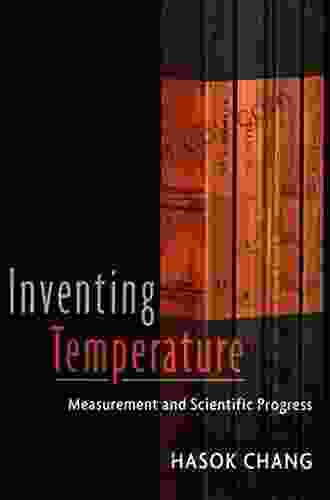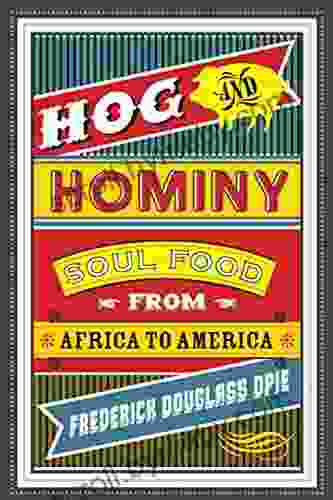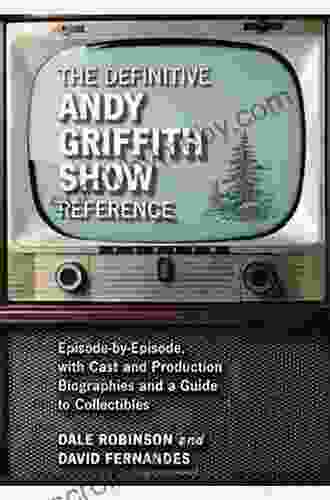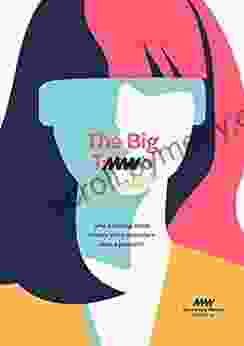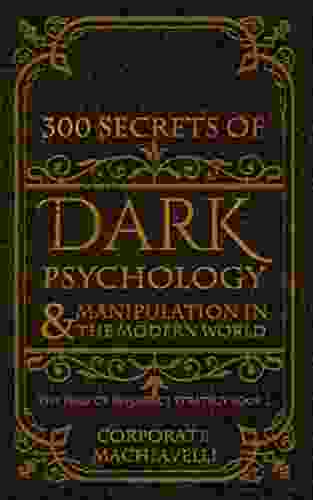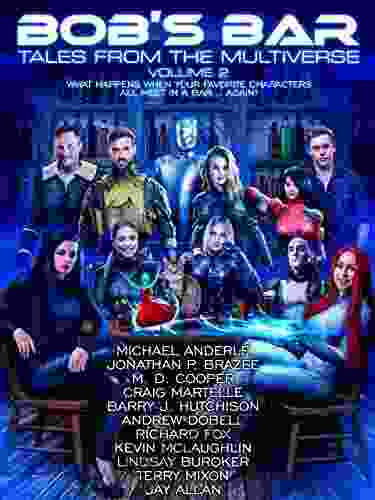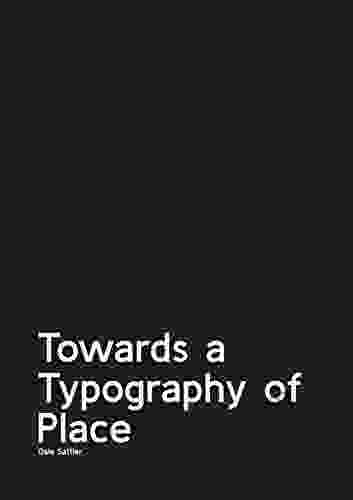Measurement and Scientific Progress: Unlocking the Secrets of the Universe

Measurement lies at the heart of scientific progress, providing the empirical foundation upon which our understanding of the universe is built. From the earliest astronomical observations to the cutting-edge experiments of modern physics, measurement has played a pivotal role in shaping our scientific knowledge.
The Nature of Measurement
Measurement involves assigning numbers to the properties of objects or events, allowing us to quantify and compare them. According to Ernst Nagel, measurement is "the assignment of numerals to objects or events according to rules." These rules establish a relationship between the numbers and the properties being measured, ensuring that the measurements are consistent and meaningful.
4.6 out of 5
| Language | : | English |
| File size | : | 5045 KB |
| Text-to-Speech | : | Enabled |
| Enhanced typesetting | : | Enabled |
| Word Wise | : | Enabled |
| Print length | : | 308 pages |
| Lending | : | Enabled |
| Screen Reader | : | Supported |
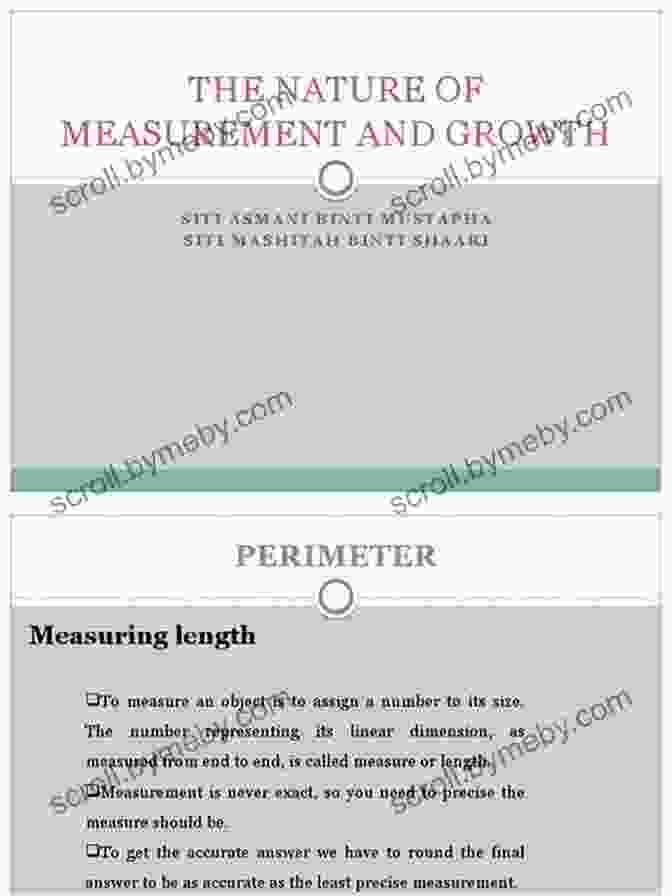
The Importance of Measurement in Science
Measurement is essential for scientific progress for several reasons:
* Objectivity: Measurements provide objective data that can be independently verified and shared among researchers. This allows scientists to build consensus and establish scientific facts. * Quantification: Measurements allow us to quantify phenomena, enabling precise comparisons and the formulation of mathematical models. This is crucial for predicting and understanding the behavior of the natural world. * Precision and Accuracy: Sophisticated measurement techniques allow scientists to make precise and accurate measurements, reducing uncertainty and increasing the reliability of scientific findings.
Measurement and the Scientific Method
Measurement is an integral part of the scientific method, the iterative process through which scientific knowledge is generated and tested. It enables scientists to:
* Formulate Hypotheses: Measurements provide data that can be used to formulate and refine scientific hypotheses. * Test Hypotheses: Measurements are used to test the validity of hypotheses through experiments and observations. * Analyze Data: Measurements are analyzed to identify patterns, trends, and deviations from expected values, which can lead to new insights and discoveries.
Historical Milestones in Measurement
Throughout history, significant milestones in measurement have marked major advancements in scientific understanding:
* The Pendulum Clock (Galileo Galilei, 16th century): Galileo's pendulum clock provided a precise method for measuring time, enabling accurate astronomical observations and the development of celestial mechanics. * The Thermometer (Galileo Galilei, 17th century): Galileo's invention of the thermometer allowed scientists to quantify temperature, leading to the study of heat and thermodynamics. * The Spectroscope (Joseph von Fraunhofer, 19th century): Fraunhofer's spectroscope revolutionized astronomy by enabling scientists to analyze the chemical composition of stars and galaxies. * The Laser Interferometer Gravitational-Wave Observatory (LIGO, 21st century): LIGO's groundbreaking detection of gravitational waves opened a new era in astronomy, confirming Einstein's theory of general relativity.
Measurement in Modern Science
In modern science, measurement has become increasingly sophisticated and precise, enabling scientists to explore phenomena at unprecedented scales and depths:
* Particle Physics: Measurements in particle accelerators like the Large Hadron Collider have led to the discovery of new subatomic particles and insights into the fundamental nature of matter. * Neuroscience: Brain imaging techniques like fMRI and EEG allow neuroscientists to measure brain activity and gain insights into the workings of the human mind. * Climate Science: Advanced measurement technologies, such as satellite remote sensing and weather stations, provide critical data for understanding and predicting climate change.
The Future of Measurement
The future of measurement holds exciting possibilities for scientific discovery, including:
* Quantum Measurement: The application of quantum mechanics to measurement has the potential to revolutionize precision and sensitivity, enabling new insights into quantum phenomena. * Artificial Intelligence and Data Analytics: AI algorithms can assist scientists in analyzing vast amounts of measurement data, identifying patterns, and making predictions. * Wearable and Implantable Sensors: These technologies promise non-invasive and continuous monitoring of various health and environmental parameters, leading to personalized medicine and smarter cities.
Measurement is the cornerstone of scientific progress, providing the empirical foundation for our understanding of the universe. From ancient astronomical observations to modern particle accelerators, measurement has enabled scientists to quantify, compare, and explore the natural world with unprecedented precision and accuracy. As measurement technologies continue to evolve, the future holds limitless possibilities for scientific discovery and the advancement of human knowledge.
4.6 out of 5
| Language | : | English |
| File size | : | 5045 KB |
| Text-to-Speech | : | Enabled |
| Enhanced typesetting | : | Enabled |
| Word Wise | : | Enabled |
| Print length | : | 308 pages |
| Lending | : | Enabled |
| Screen Reader | : | Supported |
Do you want to contribute by writing guest posts on this blog?
Please contact us and send us a resume of previous articles that you have written.
 Book
Book Novel
Novel Page
Page Chapter
Chapter Text
Text Story
Story Genre
Genre Reader
Reader Library
Library Paperback
Paperback E-book
E-book Magazine
Magazine Newspaper
Newspaper Paragraph
Paragraph Sentence
Sentence Bookmark
Bookmark Shelf
Shelf Glossary
Glossary Bibliography
Bibliography Foreword
Foreword Preface
Preface Synopsis
Synopsis Annotation
Annotation Footnote
Footnote Manuscript
Manuscript Scroll
Scroll Codex
Codex Tome
Tome Bestseller
Bestseller Classics
Classics Library card
Library card Narrative
Narrative Biography
Biography Autobiography
Autobiography Memoir
Memoir Reference
Reference Encyclopedia
Encyclopedia George Serafeim
George Serafeim Crypto Dukedom
Crypto Dukedom Clemence Mclaren
Clemence Mclaren Connie Goldsmith
Connie Goldsmith Cyd Moore
Cyd Moore Chantel Acevedo
Chantel Acevedo Ronald J Harshbarger
Ronald J Harshbarger Richard Kadrey
Richard Kadrey Codeone Publishing
Codeone Publishing Cornelius Fichtner
Cornelius Fichtner Craig Seymour
Craig Seymour Samantha Mceachin Ifill
Samantha Mceachin Ifill Craig Callender
Craig Callender Colin Thubron
Colin Thubron Corey Ann Haydu
Corey Ann Haydu Robert Morkot
Robert Morkot Joseph Luzzi
Joseph Luzzi G H Hardy
G H Hardy Joshua W Cotter
Joshua W Cotter Craig Medina
Craig Medina
Light bulbAdvertise smarter! Our strategic ad space ensures maximum exposure. Reserve your spot today!

 Isaac Mitchell30 Fun and Easy Christmas Songs for Piano: Delightful Melodies for Kids and...
Isaac Mitchell30 Fun and Easy Christmas Songs for Piano: Delightful Melodies for Kids and... Quincy WardFollow ·12.4k
Quincy WardFollow ·12.4k Robert Louis StevensonFollow ·15.1k
Robert Louis StevensonFollow ·15.1k Maurice ParkerFollow ·12.2k
Maurice ParkerFollow ·12.2k David PetersonFollow ·6.6k
David PetersonFollow ·6.6k Gabriel MistralFollow ·14.3k
Gabriel MistralFollow ·14.3k Denzel HayesFollow ·10.5k
Denzel HayesFollow ·10.5k Matthew WardFollow ·14.7k
Matthew WardFollow ·14.7k Winston HayesFollow ·8.3k
Winston HayesFollow ·8.3k

 Cruz Simmons
Cruz SimmonsUnveiling the Secrets: An Insider Guide to School Bonds...
Unlock the Power of School...
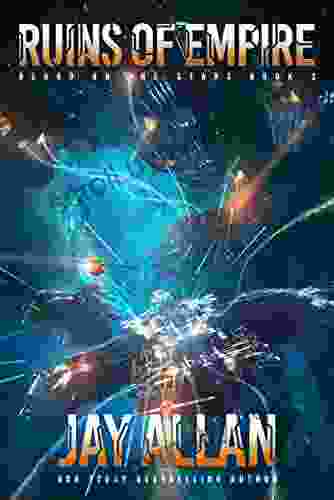
 Gil Turner
Gil TurnerRuins of Empire: Blood on the Stars - The Epic Space...
Ruins of Empire: Blood on the Stars is the...

 Allen Ginsberg
Allen GinsbergPrepare for the Ultimate Space Opera: Delve into The Last...
Embark on an...

 Anton Foster
Anton FosterUnleash Your Inner Artist: The Ultimate Guide to Oil...
Chapter 1: The...
4.6 out of 5
| Language | : | English |
| File size | : | 5045 KB |
| Text-to-Speech | : | Enabled |
| Enhanced typesetting | : | Enabled |
| Word Wise | : | Enabled |
| Print length | : | 308 pages |
| Lending | : | Enabled |
| Screen Reader | : | Supported |


